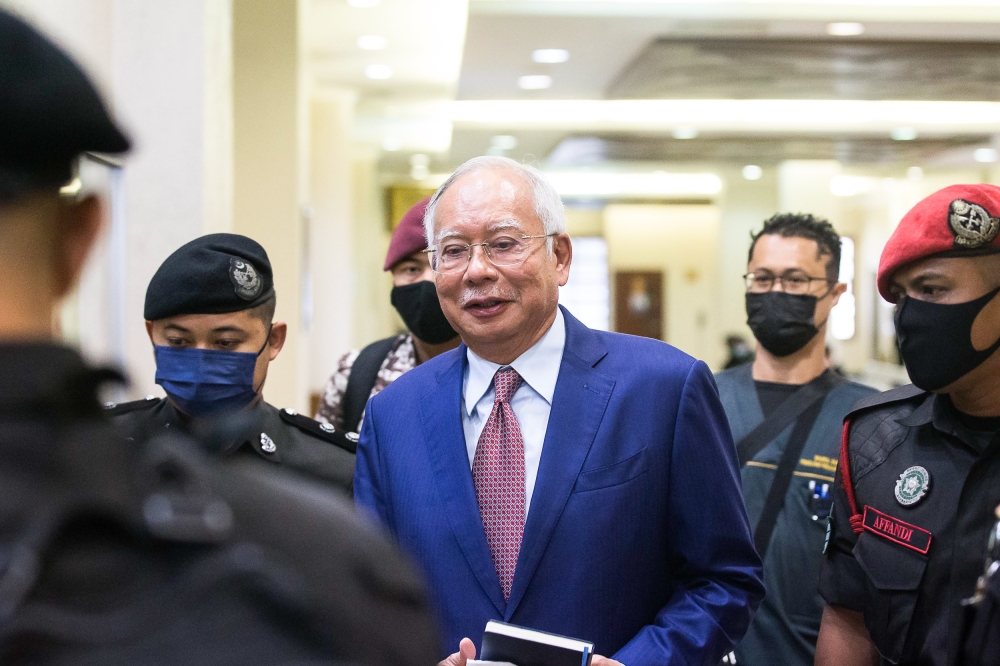MARCH 4 ― The High Court on Friday acquitted former prime minister Datuk Seri Najib Razak from his trial over the removal of key information from the Auditor-General’s 2016 report on 1Malaysia Development Berhad (1MDB).
Judge Mohamed Zaini Mazlan ruled that the prosecution had failed to prove a prima facie case for Najib to answer. The learned judge also acquitted Arul Kanda Kandasamy, the former 1MDB CEO who was also on trial as he was accused of abetting Najib, but had testified as the 15th prosecution witness.

When met after the High Court’s decision, deputy public prosecutor Kamal Baharin Omar confirmed to reporters that the prosecution would study the grounds of judgment and would refer the matter to the attorney general to decide on whether an appeal would be filed.
However, the Attorney General’s Chambers (AGC) almost always notify the court that they would appeal after losing a criminal trial.
The practice was disclosed by former attorney-general Mohd Apandi Ali, who said that it was a “long practice of the prosecution in this country to be 99 per cent sure it can secure a conviction before proffering a criminal charge.”
It was “almost automatic” since the time Abu Talib Othman was attorney-general (1980-1993), reported MalaysiaKini.
The filing of a notice for appeal would be done even before the grounds of judgement had been given, added Apandi.
Following the filing of the notice of appeal, the court would have to make a signed copy of the grounds of decision in the case and cause it to be served upon the AGC if the public prosecutor is the appellant.
Only then would the AGC be in possession of the full grounds of decision for it to study the grounds given by the trial judge, and then decide whether to proceed or not with the appeal.
According to Apandi, this was how the AGC was apolitical and any prosecution was based strictly on the facts and the law.
The public therefore can expect the AGC to appeal because it is “almost automatic”, more so when the prosecution had failed to prove a prima facie case at the end of its own case.
* This is the personal opinion of the writer or publication and does not necessarily represent the views of Malay Mail.





















